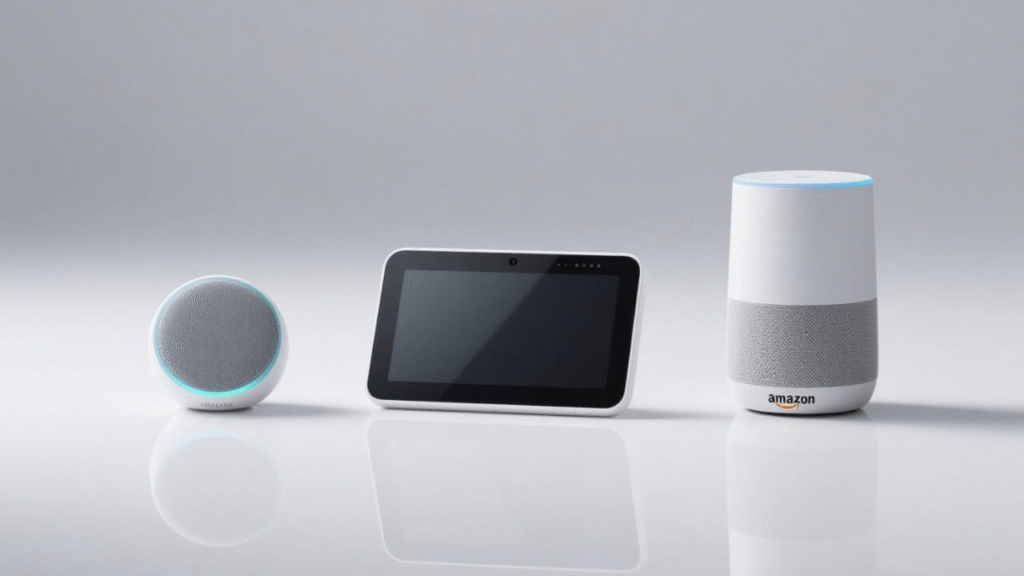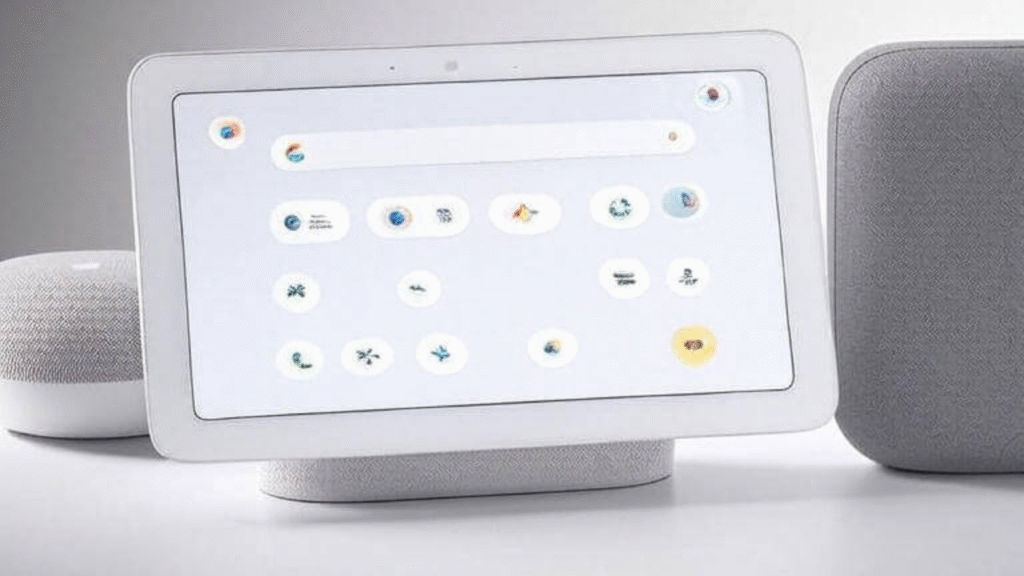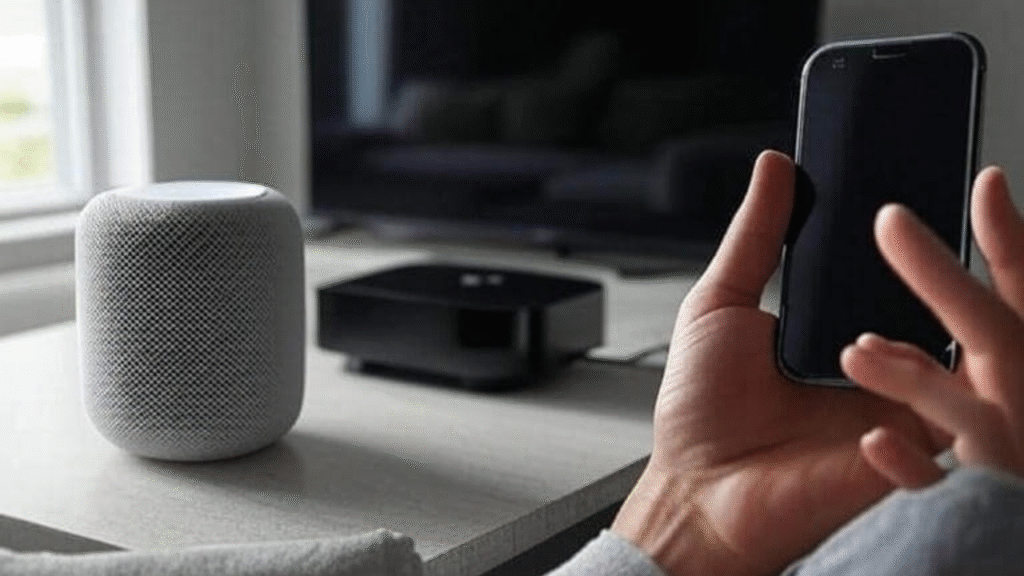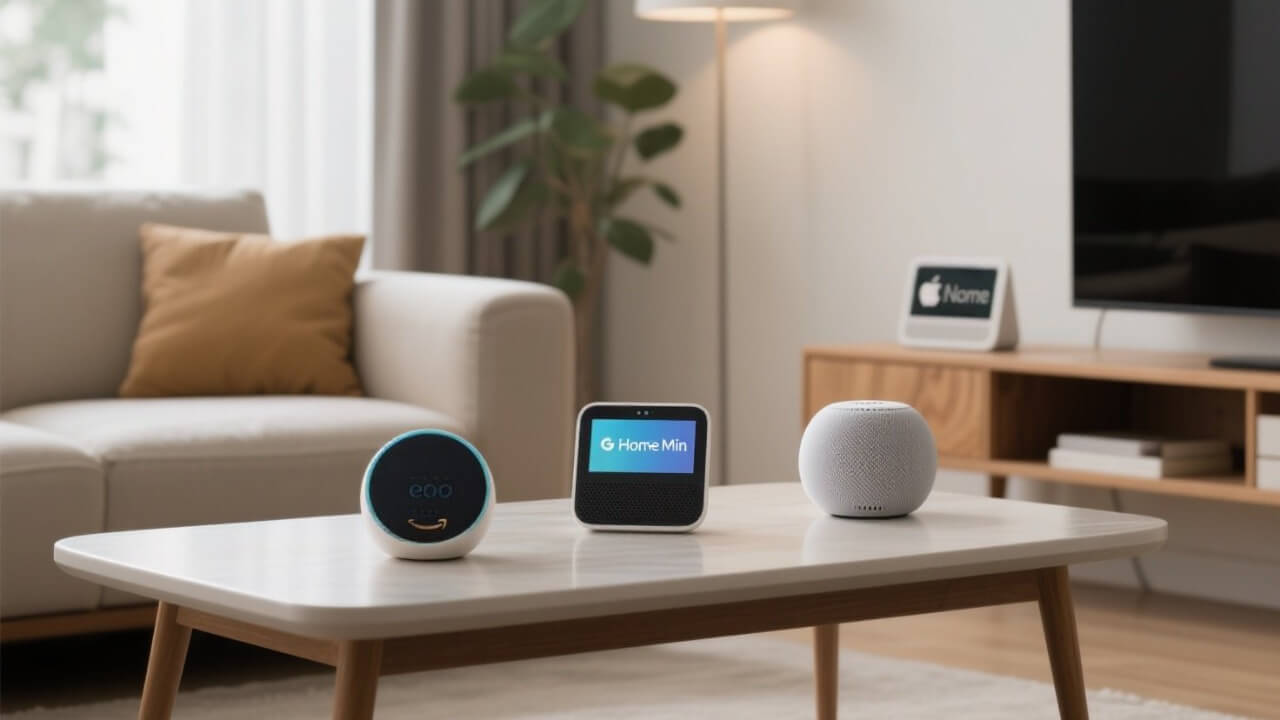How to Choose a Smart Home Hub in 2025: Google vs. Amazon vs. Apple
Alright, so you took the plunge. Congrats—you’ve landed yourself square in the “How do I make this stupid light turn on?” club. Maybe you kicked things off all wide-eyed, grabbed a shiny new Matter plug, watched it work its little miracle, and thought, “Alright, I’m living in the future now.” Fast-forward five minutes and bam—you’re drowning in all the hype. Now people keep yapping about how Matter is gonna be the peace treaty for smart home gadgets. Sounds dreamy as heck, right? But seriously—who’s actually steering this chaos?
Yep, that’s the classic smart home headache. Every gadget wants a boss, a ringleader, somebody shouting orders so your stuff doesn’t spiral into chaos. Enter: the smart home hub. Basically, it’s the brains behind the operation, the puppet-master pulling all the strings. For years, picking one meant you signed your life away to a single brand’s ecosystem—Google, Apple, Amazon… pick your poison.
But here’s the twist: just as Matter starts to smash up those digital borders, choosing your “main” hub is actually even trickier now. It ain’t just about which gizmos work with what. You’re picking the data overlord you trust, the voice you want nagging you at sunrise, the AI that’s gonna know you way too well. No pressure.
So, forget the marketing noise. This guide’s all about pit-fighting the Big Three—Alexa, Google Assistant, and Apple HomeKit—against each other. We’re talking brutal honesty: what they get right, where they absolutely fail, and, honestly, which one should be bossing around your life.
What Is a Smart Home Hub, Anyway?
Making it super basic—if your smart home is a band, the hub’s the dude with the baton. It tells your smart lights, coffee maker, and robot vac to do their bit when they’re supposed to. Otherwise? You’ve just got a bunch of tech making noise. Total mess.
That’s the thing that makes it all snap together. You say, “Good morning,” and boom—lights gently brighten, heater kicks in, coffee starts brewing… Cheers to the future, right? The serious name folks throw around is “smart home hub” or sometimes “controller.” It’s basically the brains of the whole operation, sometimes hiding in a gadget you already have—an Amazon Echo, Google Nest Audio, Apple TV 4K, or HomePod Mini.
The Big Three: Meet the Ecosystem Heavyweights
Amazon Alexa: The “Alexa Everywhere” Ecosystem

Amazon isn’t playing around—they want Alexa to be like air, chilling in every corner of your house. To make that happen, they’ve made it dead simple for outside companies to cram Alexa into their gadgets. That’s why you’ve got this wild jungle of stuff that all speaks fluent Alexa—more than any other brand, hands down.
Why Bother With Alexa? Here’s the Good Stuff:
- Device Overload: This is Alexa’s secret sauce. If it plugs in, lights up, or makes noise, chances are it “Works with Alexa.” Options? You’ve got ‘em.
- “Skills” Galore: Forget basic timers. Alexa’s got “Skills,” which are like apps you talk to. Wanna play Jeopardy, order a pizza, or get your Uber rolling? There’s a Skill for that.
- Budget to Boujee: Whether you’re just dipping your toe in with a cheapo Echo Dot or decking your place out with a fancy Echo Show, there’s an Alexa device for every wallet.
- Shopping = Way Too Easy: You just blurt out, “Alexa, get me coffee pods,” and before you know it they’re halfway to your place. Dangerous for your wallet, but magical.
The Not-So-Glorious Side:
- Big brains? Not so much: Alexa’s awesome at playing DJ, but deep convo? Don’t even bother. You have to be specific, or she’ll get confused.
- Privacy Headaches: Look, Amazon’s in the business of selling you stuff. Let’s not kid ourselves—your Echo’s basically a snitch, always ready to help Amazon sling more ads your way.
- The Alexa App… Yikes: The app’s like a labyrinth of menus. It’s got power, yeah, but it’s not exactly “easy-breezy.”
Who Actually Loves Alexa?
If you’re the kind of person who’ll spend Saturday night wiring up smart plugs and digging through Reddit threads for hacks, this is your jam. If you bleed Prime and want every gadget under the sun, Alexa’s your nerdy playground.
Google Home / Assistant: The “Home That Gets You”

So, Google’s flexing what it’s good at: search and creepy-smart AI. Their vision? Make your Assistant an actual helper, not just some voice that answers to “Hey Google.” It wants to finish your sentences, but hey, welcome to the future.
Why Roll With Google?
- Understands Humans: You don’t have to talk like a robot; it gets context, can handle follow-up questions, and taps into Google’s massive brain.
- Google Life Integration: If you’re basically glued to Gmail, Google Calendar, and Maps, this ecosystem just clicks. Ask your Nest Hub, “Hey Google, what’s up tomorrow?” and boom—it reads your plans.
- Nest Hubs Are Awesome: They crush as kitchen sidekicks—lookin’ up recipes, blasting timers, or just flicking through your best selfies.
- Routines Actually Make Sense: Setting up automations in Google Home is ridiculously simple and way less confusing than Alexa-juggling.
Where It Falls Flat:
- Kinda Fewer Gadgets: There’s a ton of smart things that play nice with Google, but Alexa’s universe? Yeah, it’s still bigger.
- Missing Some Fun Factor: Alexa gets all the weird, goofy skills. Google is more business, less party.
- Yeah, Privacy Is A Thing: Let’s be real. This is Google. They live for your data. You’re still feeding the beast.
So, Who’s It For?
If you’re living on Android, love having info at your fingertips, or have a whole fam sharing photos and calendars—it just clicks together so smooth you won’t even notice.
Apple HomeKit: The Secure and Private Smart Home Hub

Apple’s doing their own thing—no surprise there, right? What they’re obsessed with is security and privacy. They want your home to be smart, sure, but only if you can trust it. Everything just snaps together if you’re an Apple person already. Keeps things tight, private, and (mostly) headache-free.
Strengths: Why You Might Actually Pick HomeKit
- Privacy That Actually Means Something: If the idea of creepy tech giants poking into your private life makes your skin crawl, you’ll dig this. Your HomePod or Apple TV does the grunt work right there on the device. Apple locks it all down with end-to-end encryption.
- Seamless Vibes All Around: If you’re already handcuffed to the Apple ecosystem, the magic is real. The Home app’s easy to use and looks decent.
- Top-Shelf Quality Only: You gotta jump through actual hoops to get the “Works with Apple HomeKit” badge. Fewer options, but if it does work, it usually just works.
- Automations That Don’t Flake Out: Setting up smart routines is stupid simple, and since a ton of the brainwork happens locally, they actually run on time.
Weaknesses: Why HomeKit Can Be a Headache
- The Walled Garden Problem: Apple’s “walled garden” isn’t just a meme—it’s a gated community with a bouncer. Your choices are kinda sad compared to Amazon and Google.
- Siri’s Limited Chat Skills: She’s fine for switching on the lights, but ask her anything tricky and she’s gonna stare at you blankly.
- Price Tag Alert: Wanna join the cool Apple smart-home party? Gotta pay the cover charge. You need a HomePod or an Apple TV 4K, and neither is cheap.
Why Apple’s Ecosystem Is a Dream—For Some
If you’ve got all the Apple gear and guard your privacy like a dragon with gold, HomeKit was built for you. Everything syncs up, works together, and looks gorgeous.
Head-to-Head: Who Wins the Smart Home Hub Brawl?
| Feature | Amazon Alexa | Google Assistant | Apple HomeKit |
| Voice Assistant Smarts | Good for yelling commands, but no deep chats. | Seriously clever; understands context and natural language. | Handles basics fine, but shrugs at tricky questions. |
| Device Compatibility | Massive; the largest ecosystem by far. | Very Strong, but slightly less than Alexa. | Selective, but very high-quality options. |
| Core Strength | Unrivaled Choice & Flexibility | Superior Intelligence & Helpfulness | Unmatched Privacy & Security |
| Hub Hardware Cost | Budget to Premium (wide spread) | Mid to Premium | Upper End / Premium Only |
The Matter Factor: How the New Standard Changes Everything
Okay, let’s get real about Matter for a sec. Think of it as the Rosetta Stone for your lightbulbs and plugs. Doesn’t matter if you swear allegiance to Apple, Google, or you’re still shouting at Alexa in the kitchen—if your doodad’s got the Matter badge, boom, everything just clicks together. This is honestly a game-changer. No more getting stuck in one company’s walled garden. Now, decisions swing on what actually matters—like, which voice assistant doesn’t make you want to scream, or whose privacy policy doesn’t make your skin crawl.
So, Which Smart Home Hub Should You Actually Get in 2025?
- Go with Amazon Alexa if: you like options. Loads of ‘em. Always experimenting with new Skills? Living your best Prime life? Alexa’s your girl. Just be ready to blurt out specific instructions.
- Pick Google Home if: you want an assistant that feels kinda genius. If you’re already knee-deep in Google stuff (Gmail, Calendar, etc.) it all meshes together so smooth you won’t even notice.
- Roll with Apple HomeKit if: your house is basically an Apple showroom. If you’re big on privacy and want your smart home to look and feel classy, this is it. Just be ready to drop extra cash.
Frequent Questions, Rapid-Fire Edition
Can I mix and match a **smart home hub** from different brands?
Totally. Thank Matter for ditching the old drama. Plop an Echo Dot in your kitchen and a Google Nest Hub in the den—both can run the same Matter-certified light bulb. The catch? You’ll still need to handle your custom automations in each separate app.
What about other **smart home hub** options like Samsung SmartThings?
Oh, you wanna get hardcore? That’s your path. These hubs are a power user’s dream—loads of customization, but a steeper learning curve. If you just want your lights to turn on, stick with the big three.
Will my old, non-Matter smart stuff still work?
Totally. Your crusty old Wi-Fi plugs aren’t getting tossed out. Alexa, Google, and Apple still play nice with your old gear. Your existing gadgets will basically keep chugging along like nothing happened.
The Bottom Line: The Choice is Finally Yours
Now you truly have options, no longer a Hunger Games series of “Will my trash work or not?” Choosing a smart home hub these days is more like choosing your vibe. Choose what fits your lifestyle—whether you’re looking for endless options, a dash of AI wizardry, or a privacy advocate. Seriously, there’s no single best smart home hub. There’s only the one that’s best for you.
Got an Opinion? Share It!
Which smart home hub do YOU use (Alexa, Google, Apple)? Or are you waiting for Matter to make everything better? Drop your thoughts in the comments section — always cool to hear what people are actually using out there.




